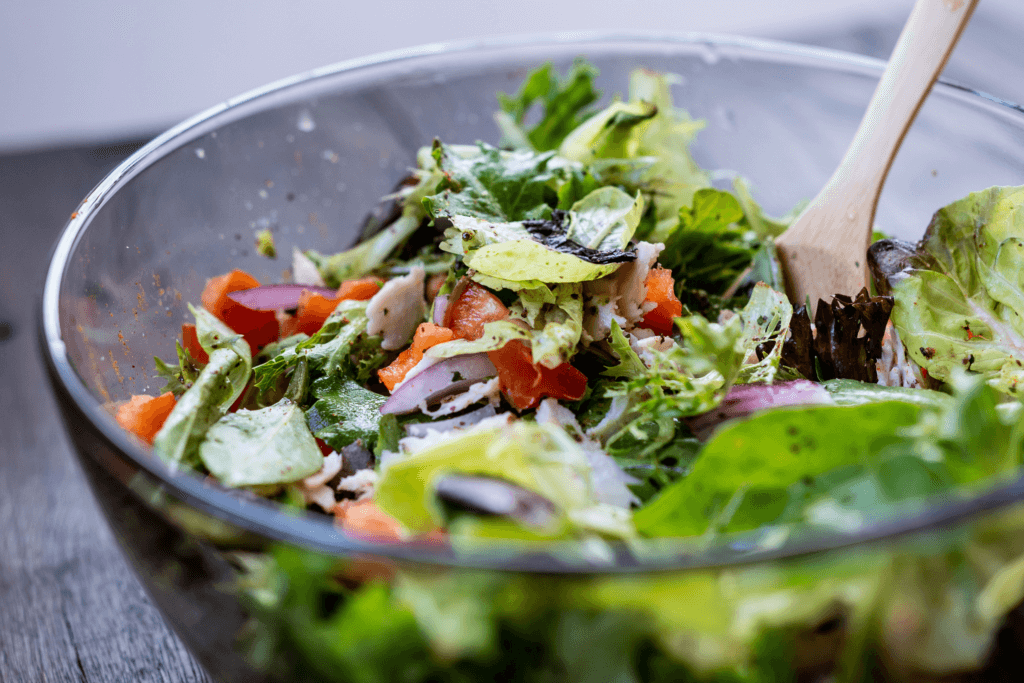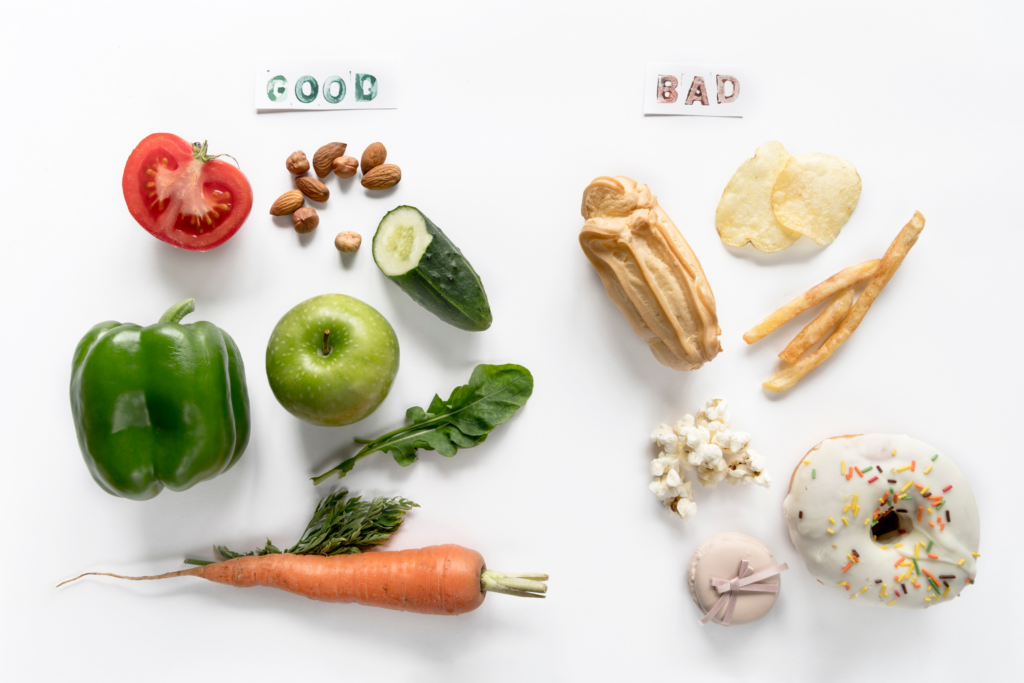3 Common Thoughts When Starting an Intuitive Eating Journey
September 20, 2021

If you’re just starting to consider a more intuitive eating lifestyle, you may feel a little confused, worried, or completely overwhelmed. One of the best things about intuitive eating also makes it the trickiest to navigate— an intuitive eating approach often means leaving food rules and diets behind…cue the anxiety.
The Core Principles of Intuitive Eating may sound great on paper, but applying them to your food choices can feel challenging! It’s completely normal during this process to have lots of questions or even doubts about your food decisions and relationship with food.
Let’s break down three common thoughts you may have as you consider a more intuitive approach to eating.
Thought #1: Intuitive eating practices can’t be healthy for me.
Intuitive eating doesn’t mean throwing health or fitness goals out the window, rather it changes your approach and mindset around your habits.
Intuitive eating recognizes that a diet rich in fruits, veggies, whole grains, & lean proteins is important. Yet, it also provides choices about food, like enjoying “fun” foods. This type of lifestyle removes food restrictions, encourages you to manage stress and sleep levels, and add joyful movement into your daily routines. Practicing gentle nutrition is equally important as the types of food.
Intuitive eating means taking care of your body in a way that feels good for you both physically and mentally. Sometimes that means a hearty salad with lots of veggies. Other times, it means enjoying fresh-baked cookies.
When you eat intuitively, you honor your hunger and fullness cues. You recognize that your hunger signals may fluctuate based on the day, training, and even the time of the month.
Current research shows that intuitive eaters have higher self-esteem and better quality of life, reduced depression, and improved cholesterol levels, blood pressure and cardiorespiratory fitness. Eating intuitively can absolutely be part of a healthy lifestyle.

Thought #2: Food freedom is going to make me gain weight.
Unfortunately, we live in a society that focuses on weight management and a particular body ideal as the golden truth to health. Both diet and fitness culture emphasizes thinness and small bodies as a means of health and success.
It’s completely valid to feel worried about if or how your body may change as you give up some control around your diet. If this is a concern for you too, check out our recent blog post on how to reframe your thinking surrounding weight changes that may occur on this journey.
Thought #3: Without a diet plan, I’ll lose control around food.
One principle of intuitive eating includes shifting your mindset to see no food as off-limits. Restrictive diet plans have labeled certain foods as “bad”, “unhealthy”, or as something you “can’t have in the house”. This gives food unnecessary power.
Instead, trust your body and allow yourself to enjoy ALL foods without guilt. When you move away from the scarcity mindset and towards a “no food rules” mindset, you’ll slowly start to notice that your cravings may become less intense or food may feel more satisfying to you. You’ll see you’ve removed power away from certain foods.
This transition into seeing food differently can take time from both a mind and body experience. This is normal and it’s important to go at a pace that’s comfortable for you.

The Takeaway
Eating for intuitively and freely can be messy! There will probably be difficulties on your journey. But there are SO MANY BENEFITS.
If you continue onward, you will eventually:
- Be able to make food and exercise decisions with ease
- Enjoy food again without guilt or feeling like you have to burn it off
- See food and eating decisions differently without stress
- Trust yourself around food
If you choose to consider a more intuitive approach to eating, remember to give yourself grace in the process. Reach out to your support systems, whether it is your therapist, dietitian, or best friend. You got this!
Interested in learning about upcoming programs and classes on Intuitive Eating? Get notifications about upcoming offerings sent right to your inbox by signing up here.
[…] exercise is engaging in a workout based on what your body needs and enjoys. You may have heard of intuitive eating. Intuitive exercise follows the same principles of connecting and listening to your mind and body to […]